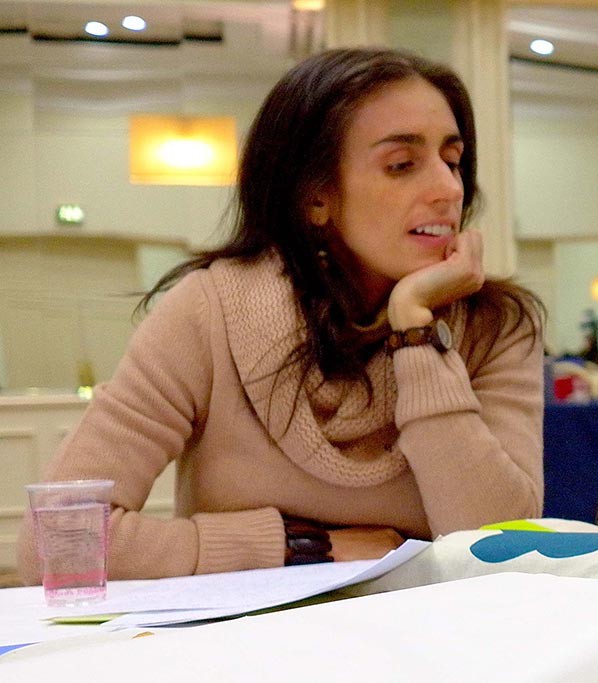
The Foundation’s approach strives to ensure that policy decisions are informed by the expertise of those people affected by the impacts of climate change, and calls for solutions whose creation includes the people these policies are made for, such as grassroots practitioners like Kirdanu Girmay, a farmer and researcher from Tigray, Ethiopia (right), who participated alongside Berhanu Woelde-Michael, Director, Food Security Coordination Directorate, Ministry of Agriculture and Rural development, Ethiopia (centre) and Ana Maria Loboguerrero, Regional Programme Leader, CCAFS (left), in a capacity building workshop that enabled them to share their expertise with high-level policy makers during the Hunger – Nutrition – Climate Justice Conference in Dublin in 2013.

The Foundation’s approach strives to ensure that policy decisions are informed by the expertise of those people affected by the impacts of climate change, and calls for solutions whose creation includes the people these policies are made for, such as grassroots practitioners like Kirdanu Girmay, a farmer and researcher from Tigray, Ethiopia (right), who participated alongside Berhanu Woelde-Michael, Director, Food Security Coordination Directorate, Ministry of Agriculture and Rural development, Ethiopia (centre) and Ana Maria Loboguerrero, Regional Programme Leader, CCAFS (left), in a capacity building workshop that enabled them to share their expertise with high-level policy makers during the Hunger – Nutrition – Climate Justice Conference in Dublin in 2013.
About this image 
About this image 
The Foundation identified key areas within the UNFCCC negotiations where gender references are important.
Gender_at_COP17_What_to_Track
This website uses cookies to improve your experience. Accept Privacy & Cookies Policy


![]()
![]()